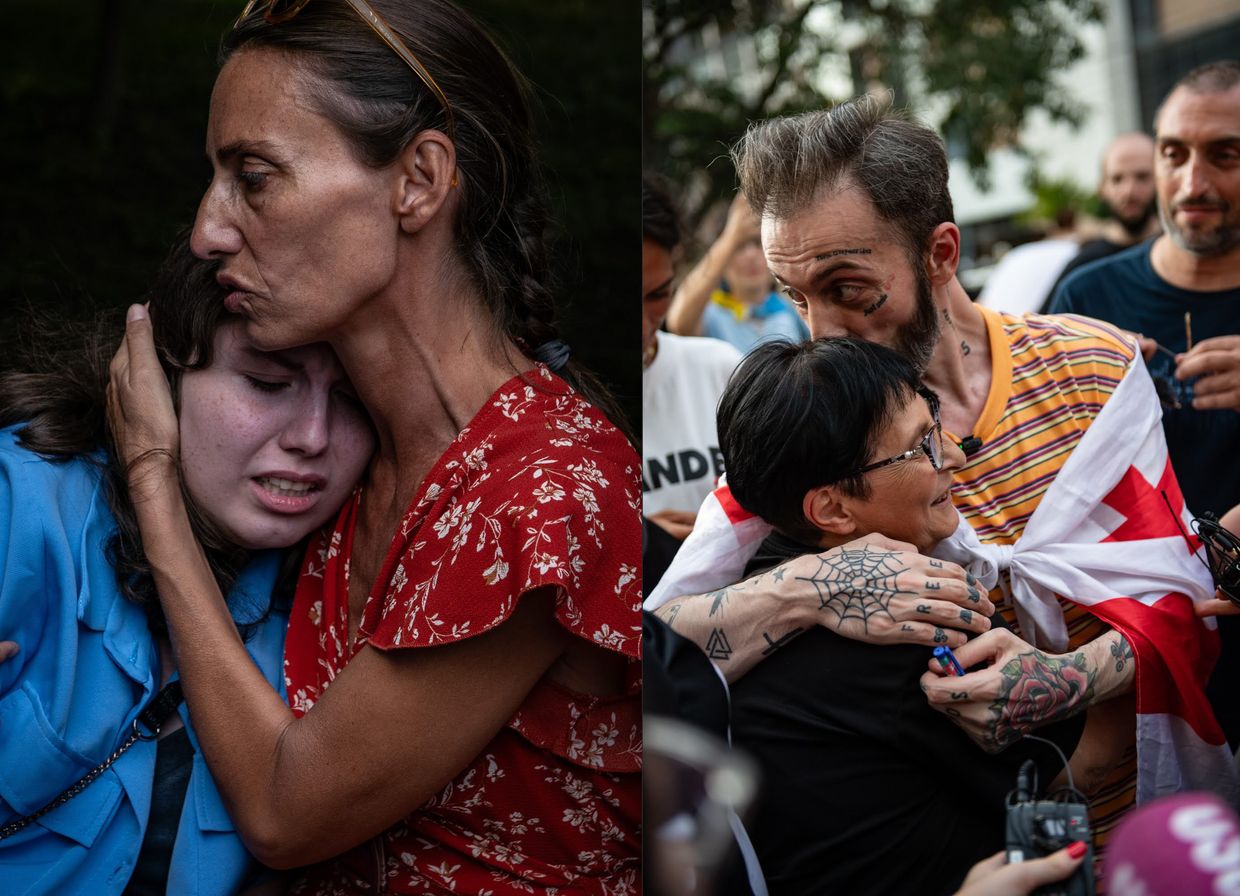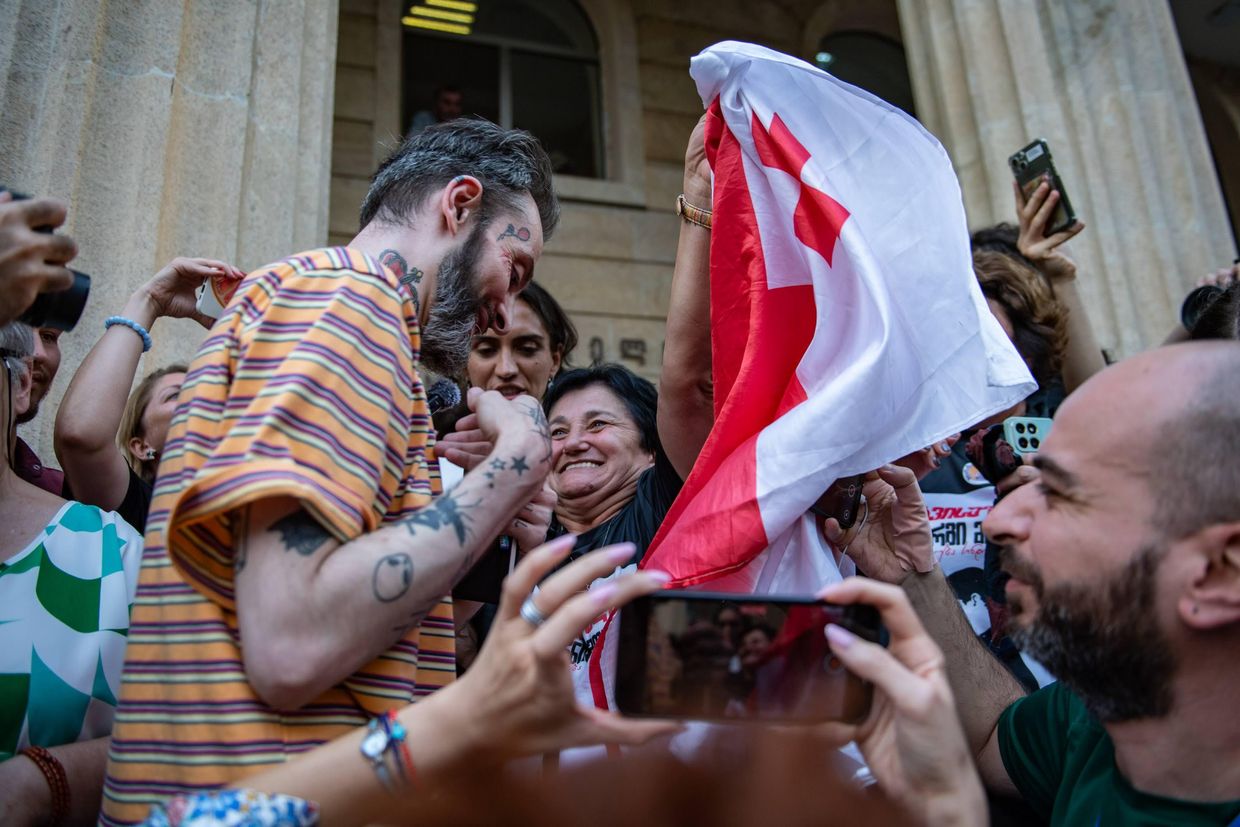Tears, anger, and resolve: how the Georgian public reacted to the sentencing of protesters
Over the course of two days, from 2-3 September, Tbilisi City Court sentenced 20 people from two to two and half years in jail and one protester to eight and a half years in jail on drug charges — another protester was cleared of drug charges.
Since the summer, media has been banned from filming inside the courtrooms, court buildings, and courtyards, but since the ban came to force, the practice has been such that the court bailiff and police have been more relaxed on this ban in the courtyard at the Tbilisi City Court. So I’ve spent these last two days in the courtyard hiding my cameras in my backpack and then photographing the reactions of the people attending the trial when the verdicts came.
Since I was not able to be in the actual courtrooms, I thought I would tell you a bit about the general atmosphere outside in the courtyard.
The morning of 2 September was probably the most dramatic start as the verdict of Anton Chechin, a Russian activist arrested during the ongoing protests on drug charges, was expected. In most of these verdicts, many of us could easily predict what the outcome would be, even the terms of the sentences were easily predictable. However, in Anton’s case, there was still hope that he would be released.
A few weeks before, two protesters who were also arrested during the protests on drug charges were acquitted. All of the cases on drug charges are very similar, and the expectation was that the judges could release all of them, just like they did in the case of the third protester, Nika Katsia, on 3 September.
But the Russian nationality of some of the protesters detained on drug charges still lingered. Some people assumed that the court would not release them just because of their nationality, even though the cases were so similar to those who were acquitted.
Therefore, the mood was more somber ahead of Anton’s verdict being announced, not aided by the fact Anton is also an oncological patient with a difficult diagnosis. When the verdict came, the response was dramatic. Some people got into scuffle with the court bailiff inside the court building, while outside, people met Anton’s wife, in tears, trying to console her.

For me, the most interesting thing to observe during these trials and verdicts was how family members of the imprisoned protesters took the news and how they were supporting each other. Parents and family members of protesters who were sentenced weeks before never stopped going to the trials of others. If the trials and verdicts would overlap, some mothers would leave the trials of their children to support mothers who had to hear the verdicts for their sons.
On 2 September, Marizi Kobakhidze’s son was sentenced to two years in jail. Even though the verdict was expected, she said she still had some tiny hope. She had brought the Georgian flag, saying she hoped to put it over her son’s shoulders, or maybe on the shoulders of Anton Chechin, who she had more expectations would be released. She cried after her son’s verdict, but said she would bring the flag the next day to put on the shoulders of Nika Katsia — when he was released, she fulfilled her promise.

The wife of Jano Archaia, who was sentenced to two years on 3 September, sobbed silently for hours, but didn’t leave and waited for Katsia’s sentence. When he was released, she then cried happy tears, saying how happy she was for him and his family.
Upon the end of this most recent trial, mothers and family members in the courtyard once again promised to continue fighting for their loved ones in prison until the very last one of them would be released.
The trials are far from over, however. The verdict for two more Russian protesters will be handed down next week — the expectation is they will receive eight and a half years, just like Anton. And in the following months, the trials of teacher Nino Datishvili, poet Zviad Ratiani, and activists Tornike Toshkhua and Mindia Sharvashidze will be held — of course, I will continue observing as they develop.





